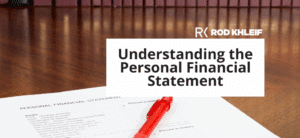Multifamily real estate offers strong wealth-building potential, but due diligence is the foundation of a profitable and secure investment. Rushing into a deal without thorough research can lead to overpaying, unexpected expenses, or legal and financial setbacks.
A well-structured multifamily due diligence process helps investors:
- Identify hidden risks before closing
- Verify financial accuracy and market conditions
- Ensure rent roll accuracy and tenant stability
- Reduce investment risk and maximize profitability
- Strengthen negotiating leverage with sellers
Here are seven critical steps to conduct due diligence that every multifamily investor should follow to make informed and profitable investment decisions.
1. Review All Financial Documents
A property’s financial records reveal its true performance. While sellers may present polished numbers, it’s the investor’s job to validate financial accuracy before committing to a deal.
Key Financial Documents to Request
- Three years of operating statements (including year-to-date data)
- Six months of bank statements to verify deposits and expenses
- Utility deposit register
- Utility bills for the last two years
- Property tax bills for the last two years
- IRS tax returns and addenda for the last two years
Conducting a Rent Roll Analysis
A rent roll analysis is crucial to confirm tenant reliability, income stability, and lease agreement accuracy. Request:
- Current rent roll with historical data for the past two years
- Security deposit register
- Lease agreements (including concessions and renewals)
- Tenant payment history
Red Flags to Watch For
- High tenant turnover or frequent vacancies
- Rent inconsistencies between leases and reported financials
- Delinquencies or a high percentage of non-paying tenants
Cross-checking profit and loss statements against bank statements and tax returns will help detect any discrepancies.
2. Evaluate Property Management & Maintenance History
Strong property management and proactive maintenance can make or break an investment. A property with poor management practices may require costly repairs and experience high tenant turnover.
Key Documents to Review
- Current property management contract
- Commission agreements with brokers and leasing agents
- Outstanding maintenance requests
- Capital improvements history (past three years)
- Litigation history on the property (past five years)
A track record of high maintenance costs, tenant complaints, or legal disputes could indicate mismanagement, which may require a change in management or additional investment.
3. Conduct a Comprehensive Property Inspection
A property may appear well maintained at first glance, but hidden structural or system issues can lead to unexpected costs. A thorough physical inspection helps assess the long-term viability of the investment.
Inspection Checklist
- Service contracts (pool, trash, laundry, pest control, landscaping)
- HVAC repair history
- Elevator maintenance reports (if applicable)
- Insurance policy and claims history (past two years)
- Business license, deed, and title policy
- Site plan, property survey, and architectural plans
On-Site Unit Inspections
- Inspect every unit, not just a sample selection
- Document conditions with photos and videos
- Check for issues such as mold, plumbing failures, electrical problems, roof damage, HVAC inefficiencies, and foundation concerns
- Bring in specialists (structural engineers, HVAC professionals) if necessary
Skipping this step could lead to unexpected renovation costs that significantly impact cash flow.
4. Research the Local Market & Neighborhood

A well-maintained property in a weak market is still a bad investment. Assessing market conditions and neighborhood trends is crucial for long-term success.
Key Questions to Ask
- What are the crime statistics in the neighborhood?
- How walkable is the area?
- Who are the major employers nearby?
- What retail stores, grocery stores, and pharmacies are in the vicinity?
- How close are schools, parks, and hospitals?
- How accessible is public transportation?
Understanding Rental Market Trends
- What are current and projected market rents?
- How do occupancy rates compare to similar properties?
- Are there any planned developments that could impact property values?
Verifying market demand and rental growth ensures that revenue projections are realistic.
5. Analyze the Property’s Operational Performance
Beyond the financials, it’s essential to evaluate how efficiently the property is being run. A property that is underperforming due to poor management, low occupancy, or excessive concessions may require a significant turnaround strategy.
Key Questions to Ask
- What is the current tenant mix?
- Has physical and economic occupancy remained stable over the past three years?
- Is the property’s occupancy rate increasing or declining?
- Is management offering excessive concessions to attract tenants?
- When were rents last raised, and by how much?
- Are maintenance expenses reasonable, or are they artificially low?
- Has NOI (Net Operating Income) been trending up or down?
Identifying underperformance or hidden inefficiencies presents opportunities to increase cash flow after acquisition.
6. Cross-Check All Due Diligence Data
At this stage, investors should compare all financial data, operational records, and market research to ensure consistency.
Steps to Take
- Compare profit and loss statements to bank deposits
- Ensure lease agreements match reported income
- Verify tax returns against claimed revenue
- Check if expenses align with industry standards
Discrepancies at this stage may indicate errors, mismanagement, or hidden risks, requiring adjustments to underwriting.
7. Finalize Negotiations or Walk Away
After completing due diligence, investors must decide whether to:
- Move forward with the deal
- Renegotiate based on new findings
- Walk away if the deal no longer makes financial sense
If new information reveals financial risks, investors should renegotiate the purchase price or request seller concessions. If a deal doesn’t meet investment criteria, walking away is often the best choice.
Final Thoughts on Multifamily Due Diligence
A structured due diligence process ensures that every investment is based on data, not assumptions. The best investors don’t force deals to work—they analyze deals to see if they actually make sense.
Due diligence isn’t just about uncovering issues; it’s about making sure the numbers, market, and property conditions support your investment goals.
Learn More About Multifamily Investing
For a step-by-step guide on due diligence, rent roll analysis, and investment strategies, check out my book, How to Create Lifetime Cashflow Through Multifamily Properties.
If you’d like to learn more, check out my Lifetime Cashflow Through Real Estate Investing Podcast.












